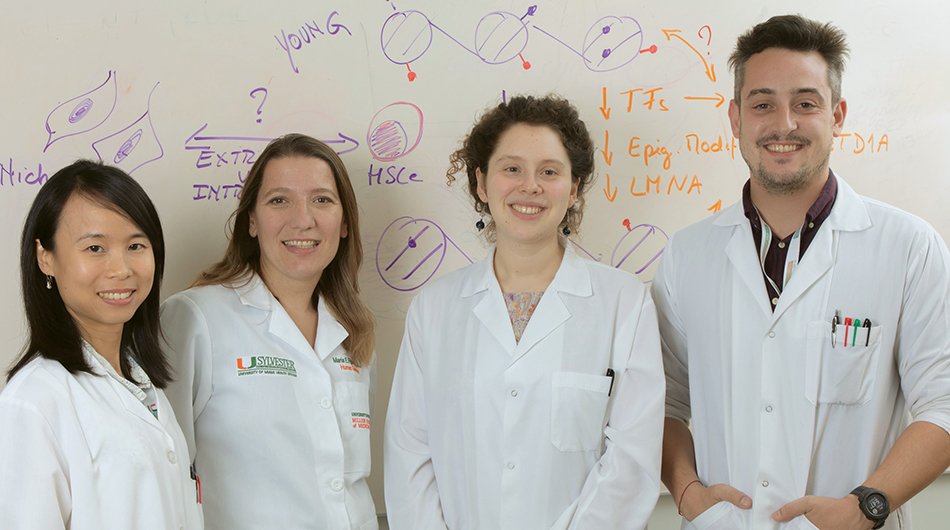A study conducted by researchers at Sylvester Comprehensive Cancer Center sheds new light on the factors associated with cellular aging and cancer risk.
The study was led by Maria E. Figueroa, M.D., cancer epigenetics program leader at Sylvester, and funded by the Leukemia & Lymphoma Society. It found that epigenetic changes in hematopoietic (blood forming) stem cells, as people age, may contribute to acute myeloid leukemia (AML) and possibly other blood cancers. The researchers’ findings were published May 13, 2019 in the journal Cancer Discovery.
“If you think of all the genetic material as hardware, the epigenome is the software of the cell, responsible for determining the cell’s behavior,” Dr. Figueroa said. “We hypothesized that, with age, this epigenetic program is getting corrupted, which turned out to indeed be the case. As we age, there are significant changes, resulting in the epigenetic reprogramming of important regulatory components of the genome. Once this happens, they can’t do their jobs as well as they could when they were young.”

In the study, the investigators collected hemopoietic stem cells (HSCs) from 41 people between 18 and 30, and 55 people between 65 and 75, none of whom had cancer. From there, they looked at epigenetic markers and gene expression levels in 59 donors (27 young and 32 old). The results showed thousands of epigenetic changes as HSCs age, profoundly impacting gene expression. In particular, these variations altered several genes that are essential for the normal functioning and differentiation of HSCs.
“Most notably, there’s a core set of changes that were reproducibly found among all individuals,” Dr. Figueroa said. “When those epigenetic changes affect certain genes, they put us at risk for malignant transformation.”
The researchers also found that many of the epigenetic and expression changes seen as HSCs aged were similar to those seen in cancer cells. Though ominous, that does not mean they will become cancerous.
“Not everyone who ages gets cancer,” Dr. Figueroa said, “and not everyone who has these epigenetic changes, or even gene mutations, gets cancer, either. We hope this study will lead to further research into age-related changes to identify which of these changes and which co-existing factors are really critical to put us at risk for cancer, and if there is anything we can do to intervene and stop those changes.”